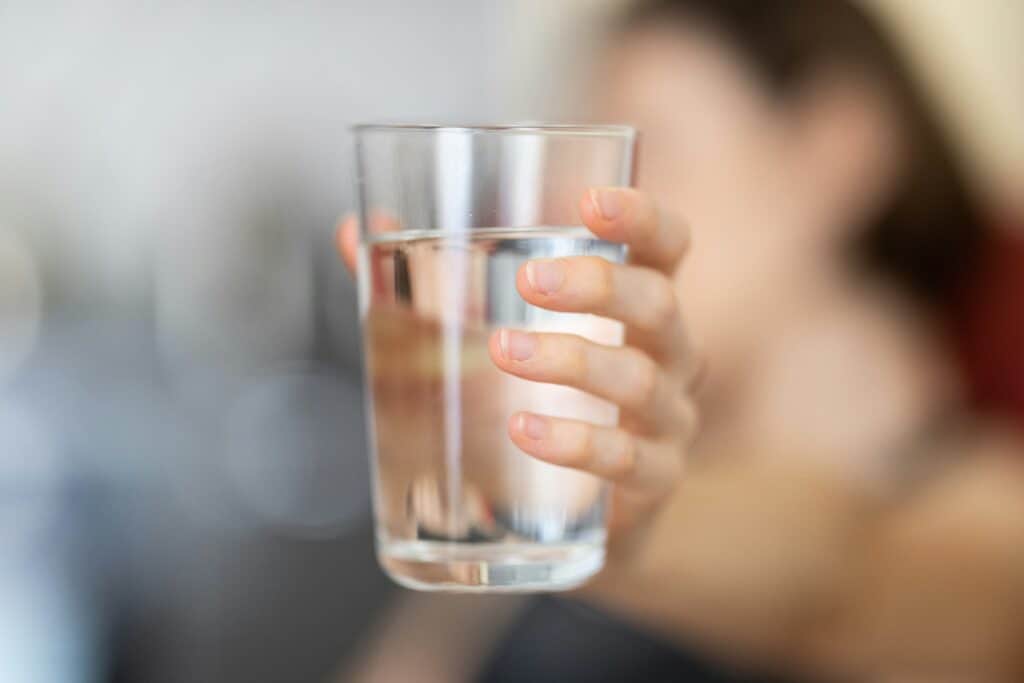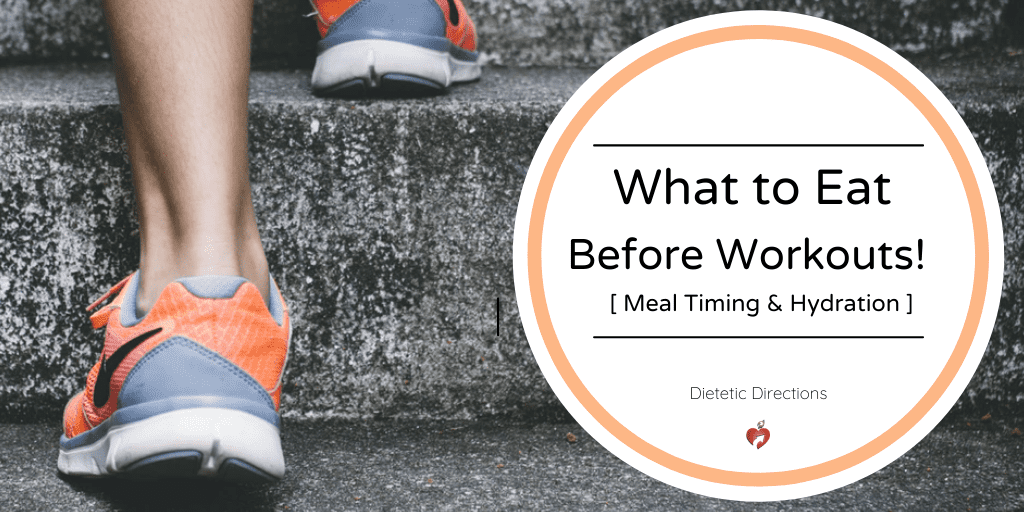
Best Pre Workout Food & Timing
The best pre-workout food will leave you feeling more energized and speed your recovery. Perhaps you play on a soccer or volleyball team, or maybe you’re a runner or golfer. Whatever activity you choose, the foods you eat will inevitably impact your workout. Therefore, you don’t have to be a professional athlete to eat in a way that helps you move faster and allows your body to recover quicker.
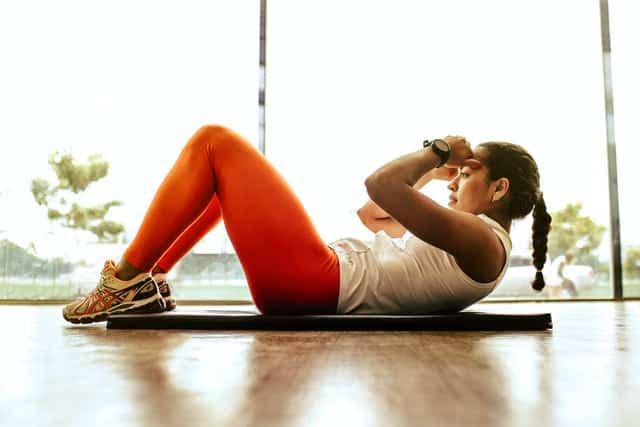
Today, we’re going to discuss the best pre-workout food, plus meal timing and hydration! First, we will distinguish the two main macronutrients and why they’re important for workouts. Next, I’ll break down the timing of what to eat before workouts and how this can boost performance. It’s all about having fun and eating well, so let’s jump right in!
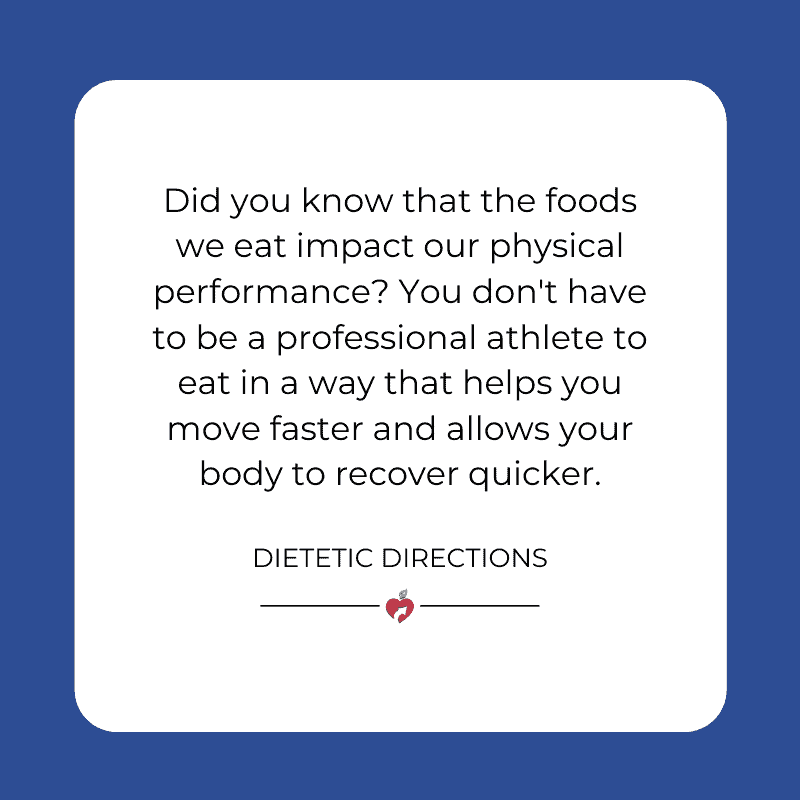
Why Is Sports Nutrition Important?
- Fueling your body well provides your muscles with more energy.
- Performance is enhanced (ie. going faster/stronger) with less fatigue.
- The body can recover faster and is less prone to injury.
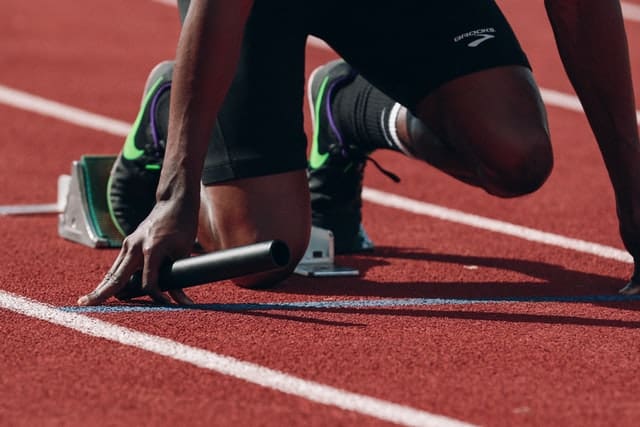
What are the Two Main ‘Macros?’
To start, you may have heard the term “macros” to describe our macronutrients, which are the major food/fuel sources that our bodies require. There are actually three macronutrients – carbohydrates, protein, and fat; however, today we’re going to focus on the first two as they play the greatest role in helping us know what to eat before workouts.
1. Carbohydrates AKA ‘Carbs’
Purpose: Carbohydrates help increase our energy and act as muscle fuel.
Carbohydrates are the body’s preferred and most efficient source of fuel for muscles and the brain. Carbs improve athletic performance by delaying fatigue, allowing us to exercise longer and at higher levels of exertion.
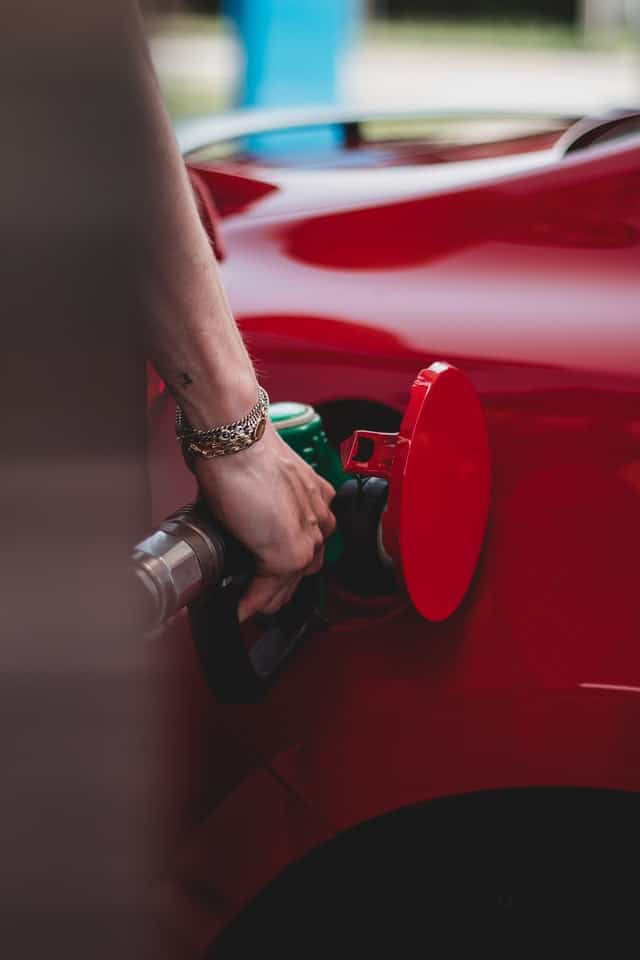
Interestingly, stored carbohydrates are known as “glycogen,” which is a fancy word for muscle fuel. If you do not have enough glycogen (carbohydrates), your body will actually break down muscle before fat for energy.
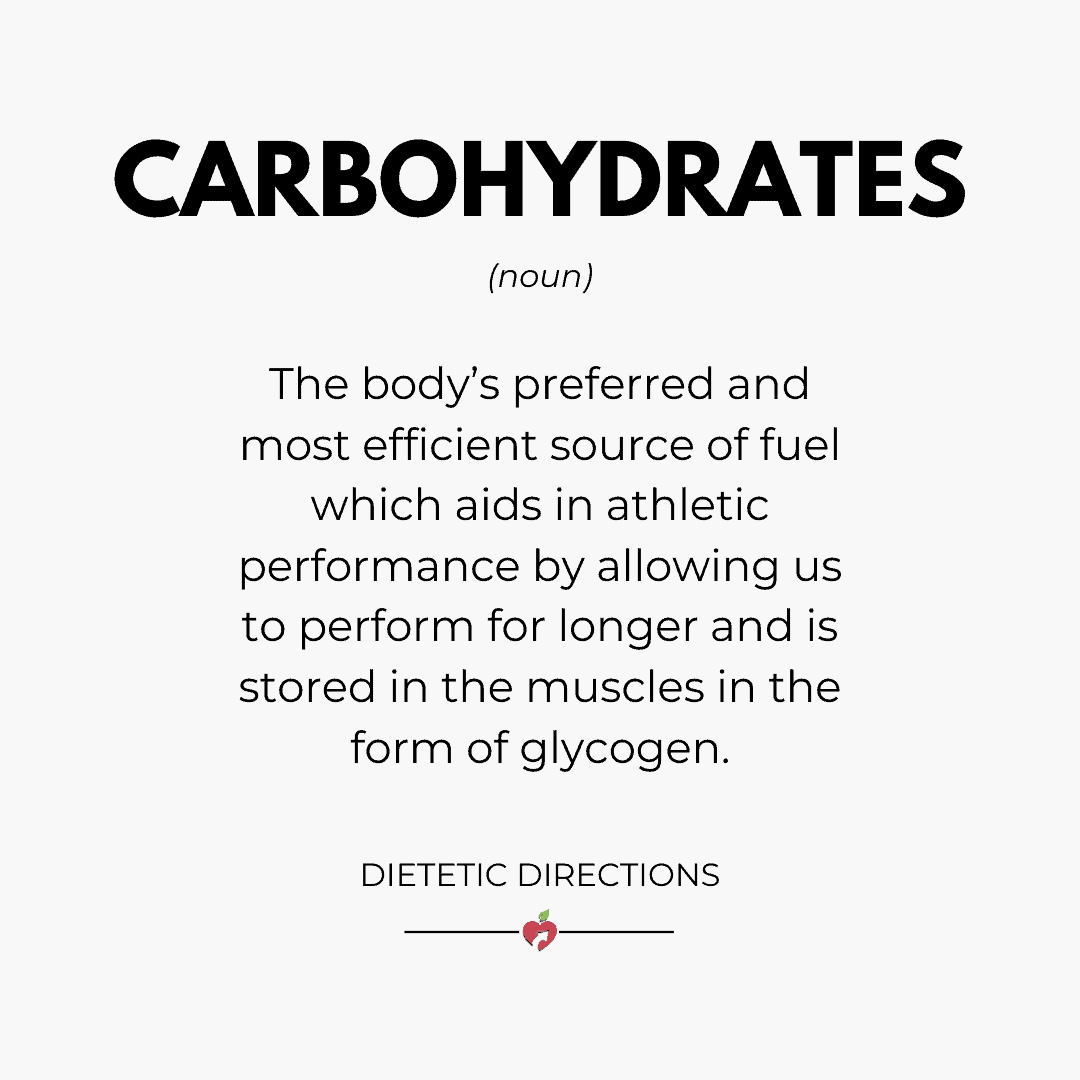
Carbohydrates Include:
- Starchy vegetables (potatoes, peas, corn, squash)
- Whole grains (bread/wraps/crackers, pasta, cereals, quinoa, oats, rice, bulgur, etc.)
- Pulses (beans, chickpeas, and lentils)
- Milk (think lactose is a sugar, which is a carb!)
- Fruits (fresh, frozen, dried fruits)
Did you know? Without adequate carbohydrates, our body breaks down muscle for energy. Consequently, losing muscle decreases performance and slows our metabolism.
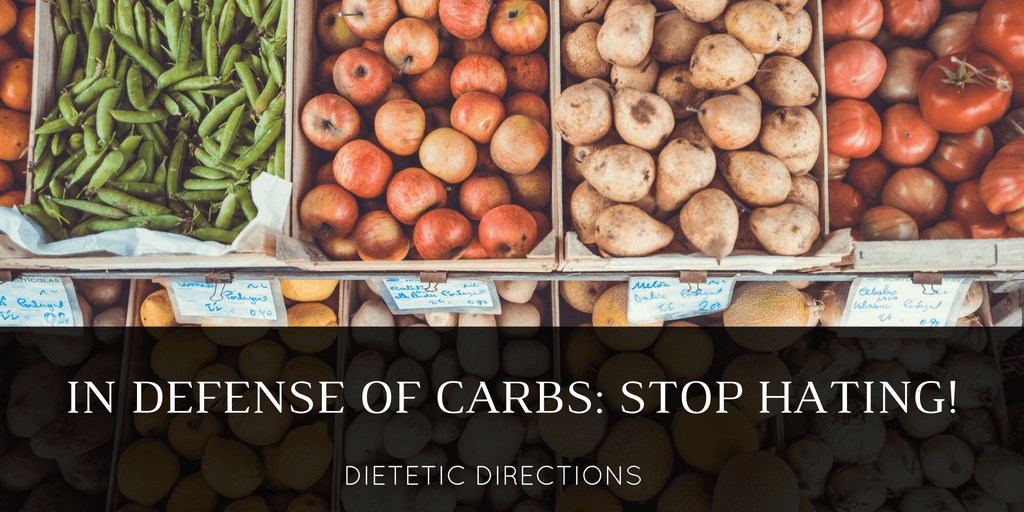
Carbohydrates for Muscle?
- Interestingly, consuming carbohydrates is necessary to build muscle!
- When our bodies are fuelled with the right amount and quality of carbs, protein can then do its main job of repairing/building muscle tissue, which can lead to muscle gain.
- Carbs fuel strong muscle contractions needed in high-intensity training or weight-lifting. If carb intake is too low, fatigue is higher, and performance is generally lower.

2. Protein AKA ‘Building Blocks for Muscle’
Purpose: Protein is crucial for tissue growth and repair.
Preferably, protein should NOT be burned as a source of energy (unless the body has inadequate calories). This is because protein is slow to break down and digest. Additionally, protein is involved in the growth, maintenance and repair of red blood cells, skin, nails and hair, as well as hormone production.
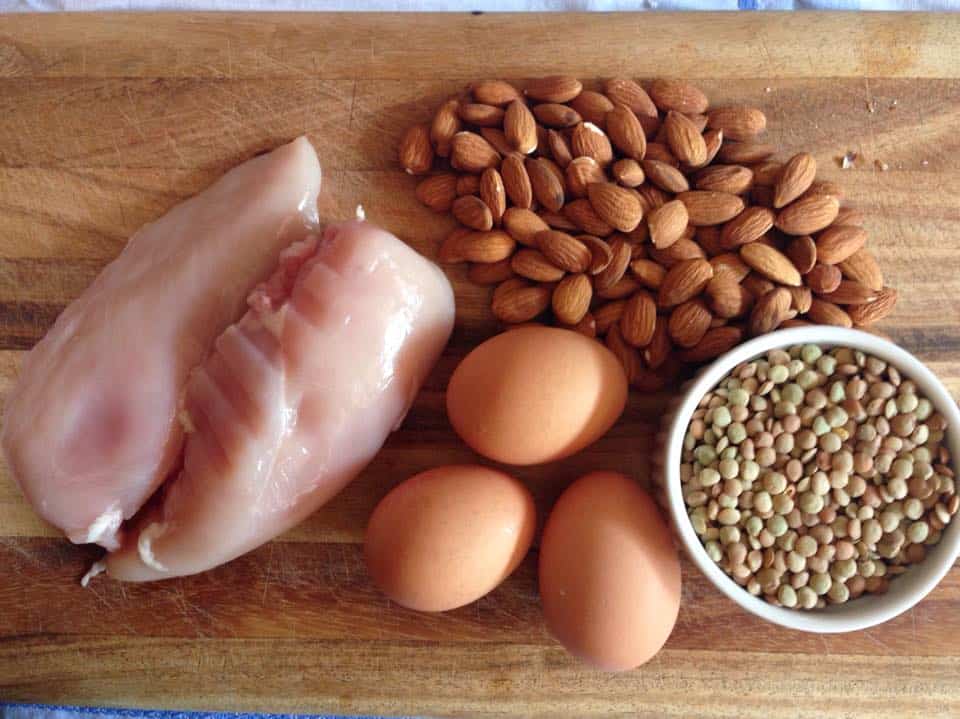
Protein Includes:
- Meats, eggs & fish (chicken, beef, pork, turkey, eggs, salmon, sole, etc.)
- Pulses (beans, chickpeas, and lentils)
- Milk, yogurt, kefir, cheese or cottage cheese
- Nuts, seeds, hemp hearts, nut butters
- Tofu, tempeh,edamame, soy milk
- Protein powder
What’s a Complete Protein?
Protein is made up of amino acids, which are building blocks needed to support muscle building, immune function, and hormone production. There are 20 different amino acids needed for growth and functioning. However, the body cannot synthesize 9 of the 20 amino acids. The term “essential amino acids” refers to these 9 amino acids that the body cannot produce and must be consumed in the diet.

For example, animal products like eggs, meat, fish and poultry contain all amino acids and are referred to as complete proteins. Additionally, consuming complete proteins that contain leucine, an essential amino acid, is especially effective at stimulating muscle protein synthesis. We receive leucine in foods like eggs, chicken, pork, beef, tuna, tofu and milk.
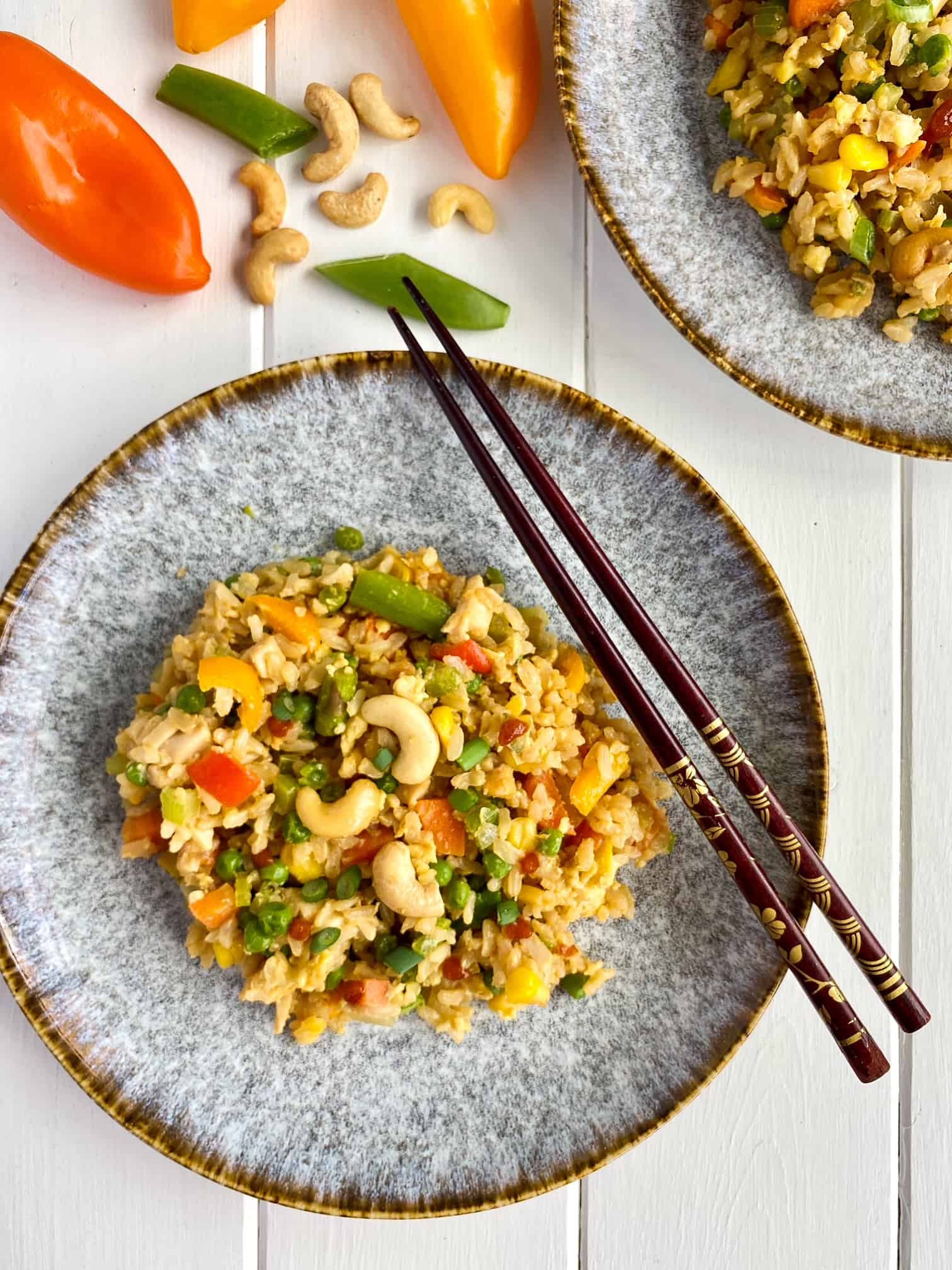
Vegetarian or vegan athletes can receive complete protein with a concerted effort to utilize specific food sources and food pairings. For example, grains like rice are too low in lysine to be considered a complete source of protein. However, by pairing lentils or beans, which are higher in lysine, you can be sure to obtain all nine essential amino acids. Plant-based complete proteins include quinoa, tofu, edamame, rice and beans, peanut butter sandwiches, hemp seeds, and chia seeds.
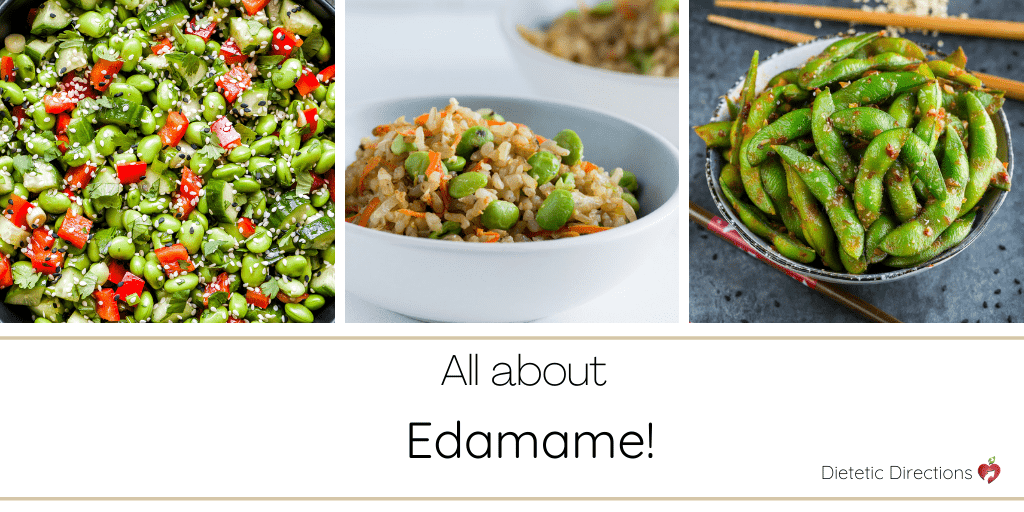
How Much Protein Do We Need?
According to The International Society of Sports Nutrition (ISSN), for building muscle and for maintaining muscle mass, an overall daily protein intake in the range of 1.4–2.0g protein/kg body weight/day (g/kg/d)is recommended. For a 150 lb athlete (68 kg) the protein range would be 95 to 135 grams of protein a day. We can break this down to plan for 20 to 30 grams of protein per meal, ideally evenly distributed, every 3 to 4 hours spread across the day.

What is the Best Pre-Workout Food?
When it comes to the best pre-workout food for physical activity, it is important to understand how our body utilizes food as energy. Therefore, before workouts, it’s best to have a source of carbohydrates to boost your energy and fuel your muscles. For example, choose carb options like fruits, whole-grain breads/crackers, a small homemade muffin or cold cereal (low in sugar and moderate in fibre). But the timing for digesting protein is a little more complicated.

Foods to Avoid Before a Workout:
- Foods high in fibre (over 5 grams per serving) add bulk and slow digestion. These will feel heavy in the stomach before a workout.
- Fatty foods lead to slow digestion and may cause discomfort if consumed close to a workout.
- Sweets cause a quick rise and fall in blood sugar and don’t sustain lasting energy.
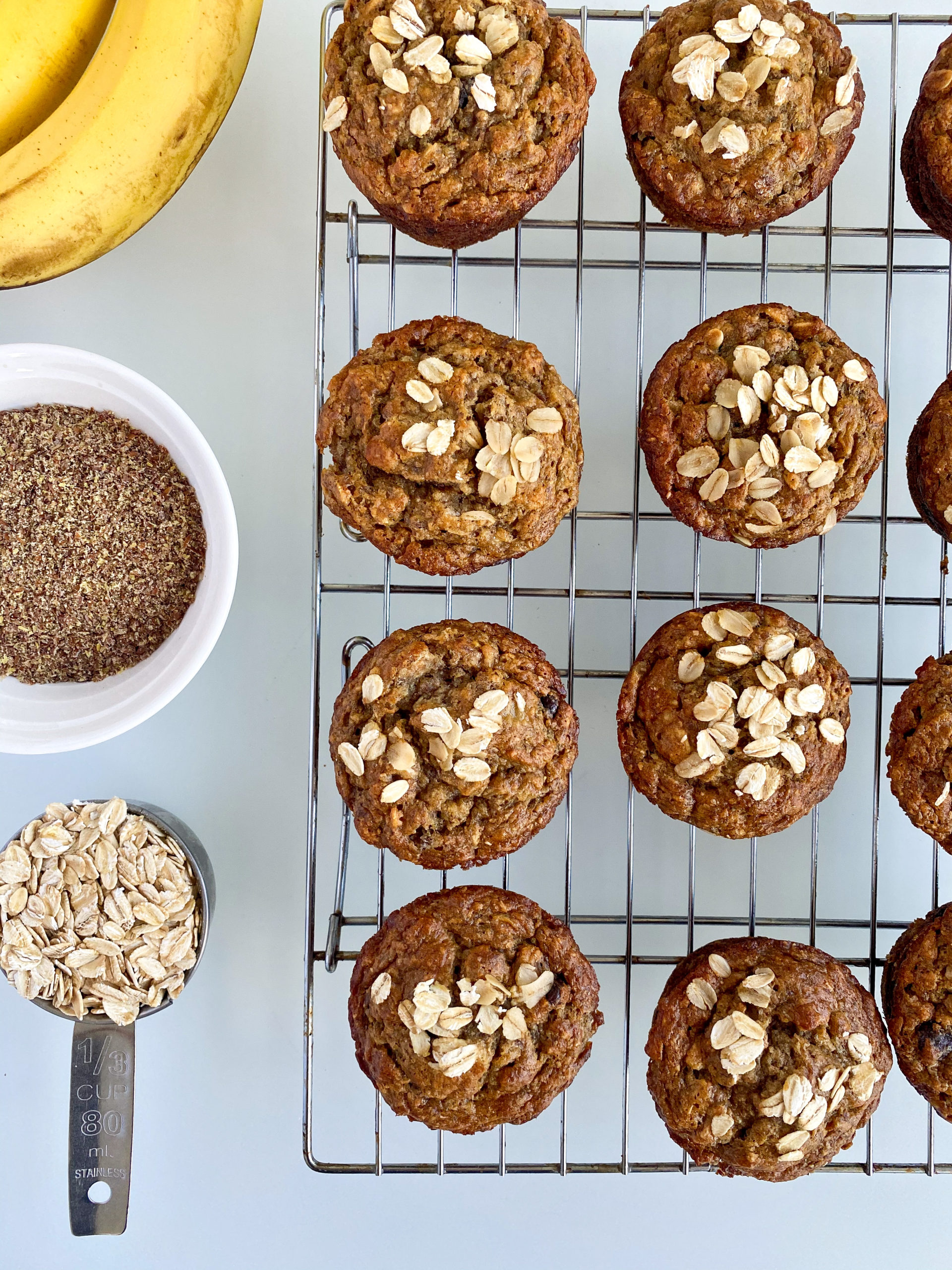
What’s Best Pre Workout Protein Timing?
- Your best pre workout food should contain protein if consumed 2 hours or more before exercise. This is because protein slows the absorption of carbs and makes them less available for energy.
- Choose lean meats (turkey, chicken breast, roast beef, or ham), eggs, light peanut butter, fish and low-fat dairy or soy products if you have adequate time.
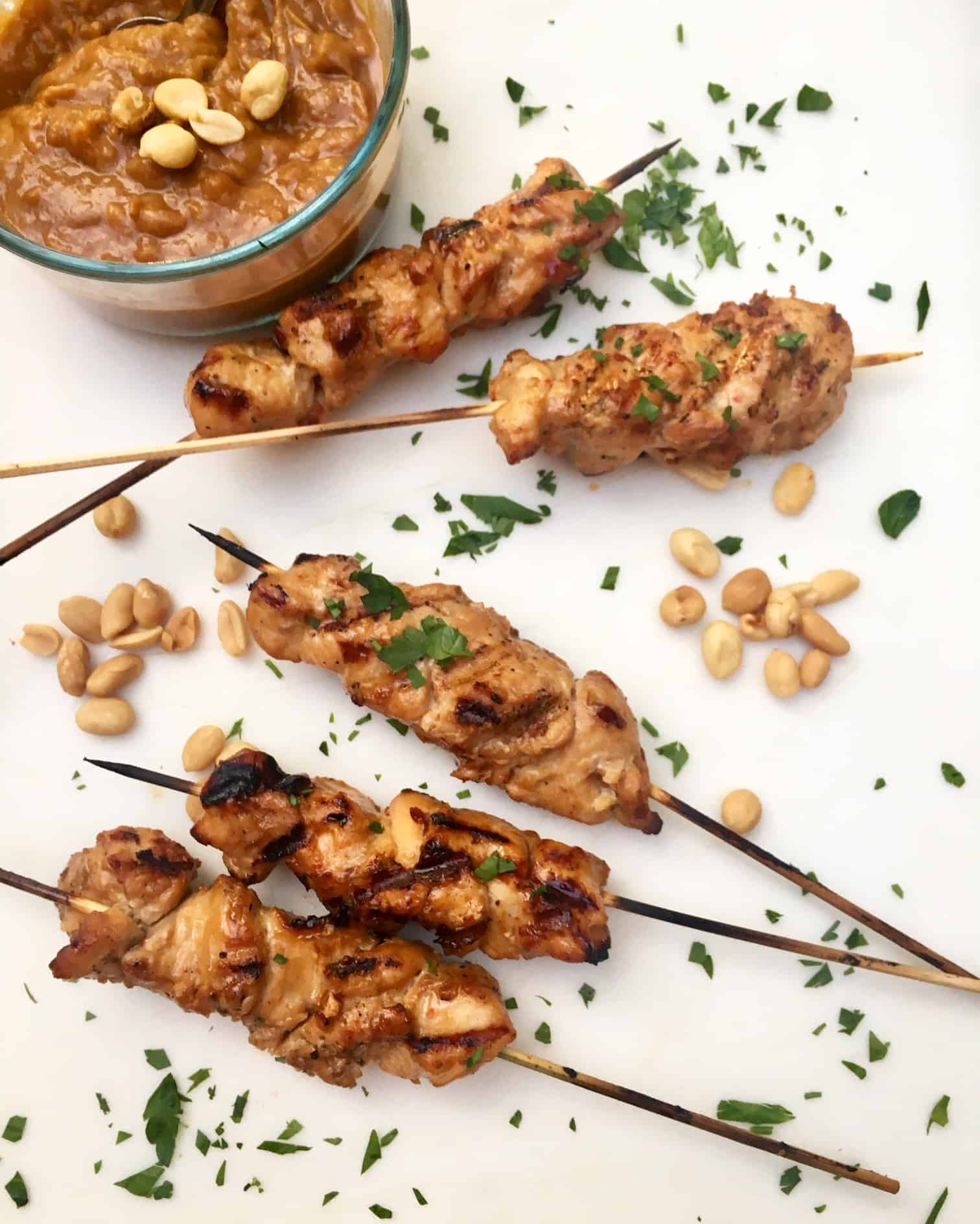
What Do I Eat Within 2 – 4 Hours Before Workout?
If you have two to four hours before your workout, you can enjoy a Balanced Meal (Carb, Protein, and Veggies). You have time to digest protein and still need your carb fuel source. The higher fibre in the vegetables will have time to digest as well.
Examples: Sandwich with protein, stir-fry, egg & toast, cheese & fruit platter, peanut butter & crackers, pasta with meat/lentil sauce, etc.
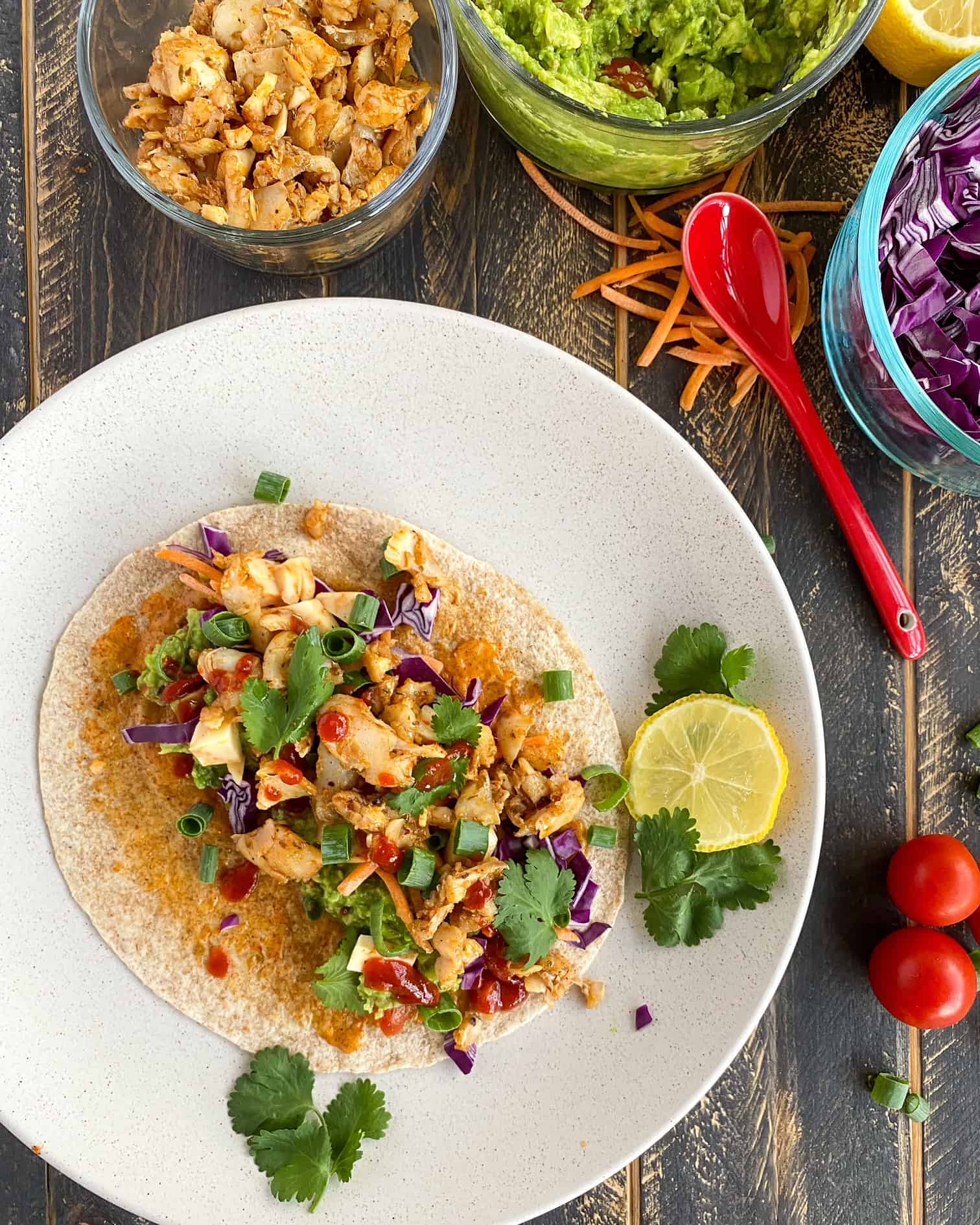
Best Pre-Workout Foods within 1 to 2 Hours
If you only have a little time before your workout, go for something that’s High Carb, Moderate Protein, and Low Fat. This will boost energy and not cause overfullness.
Examples: Cereal with milk, hard-cooked egg & fruit, sports bar (less than 10 grams of protein), or yogurt fruit smoothie.
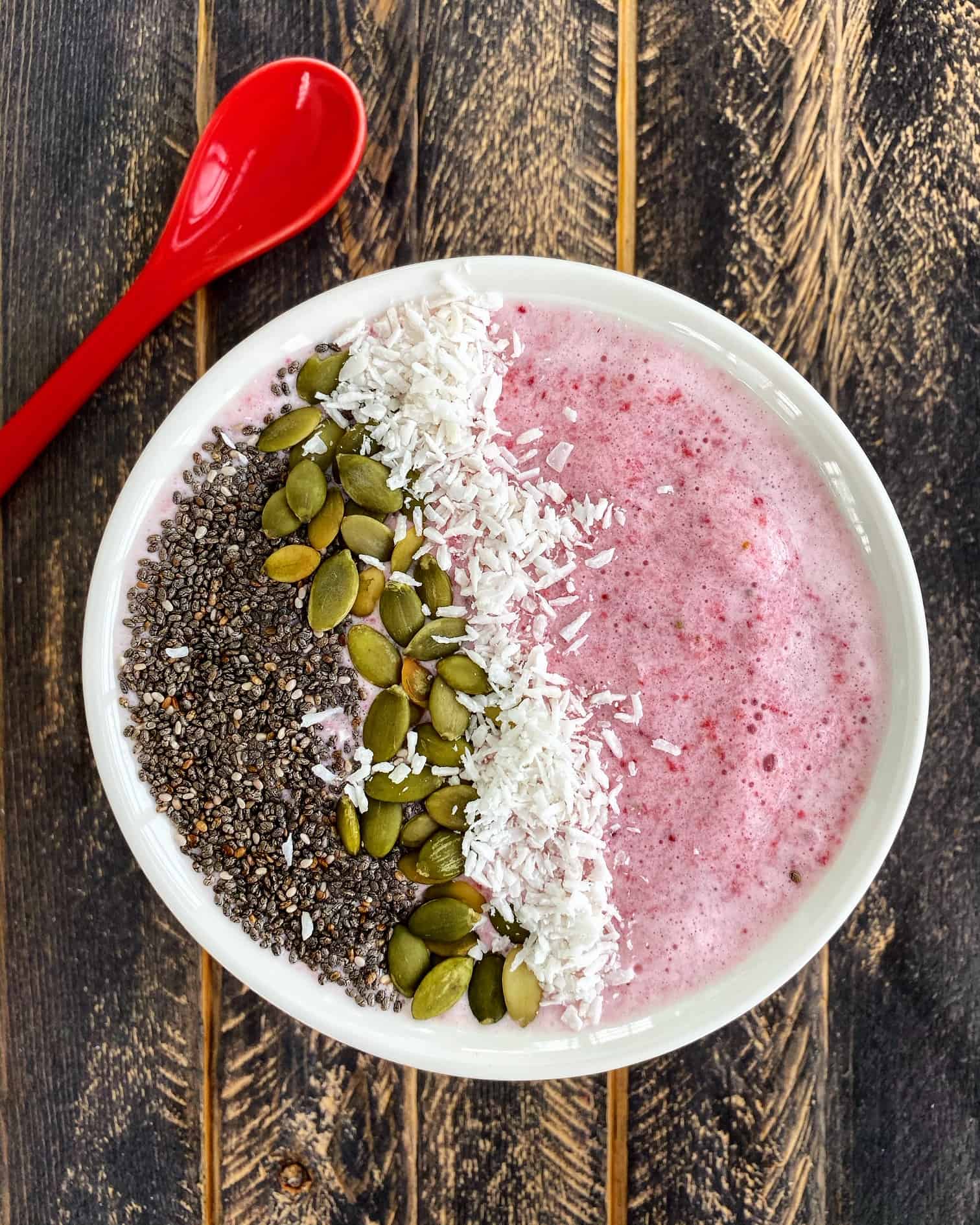
What Do I Eat 1 Hour Pre-Workout?
With just one hour before exercise, be sure to go for something that’s High Carb and Lower in Protein, Fibre, and Fat. This is easier to digest and utilize as fuel.
Examples: Fresh fruit, crackers, dry cereal (low fibre/protein), homemade muffin.

What to Eat Post-Workout?
After your volleyball match or favourite physical activity, your body is ready for refuelling. Aim to consume carbohydrates to replenish your muscle fuel (glycogen) and consume protein to stimulate muscle synthesis and repair. Include veggies for vitamin, mineral and antioxidant boosts.
Examples: Omelette and toast, Whole grain pasta with a meat/lentil and veggie sauce, peanut butter/tuna/chicken/egg/salmon sandwich, fried rice with edamame/tofu/chicken, high protein cereal and milk, naan pizzas, etc.
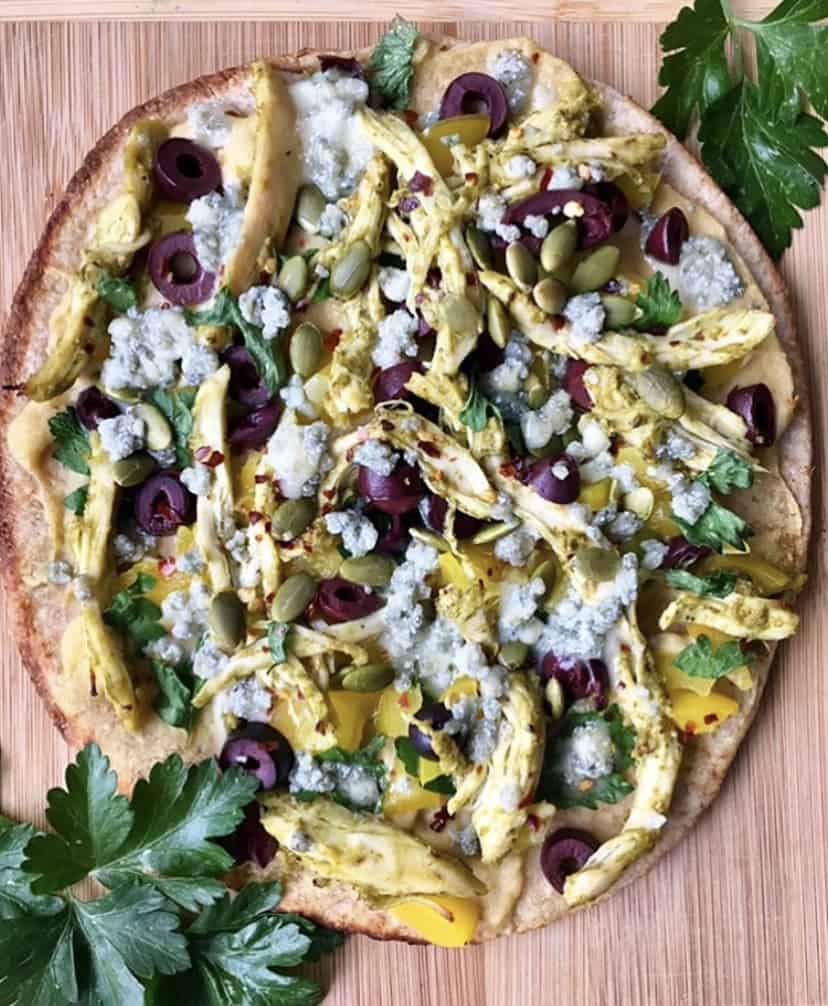
Hydration Basics:
Staying well-hydrated keeps your body performing well. Remember, 60% of your body is made up of water. Well-hydrated muscles experience less fatigue and are less prone to injury and soreness the next day.
What’s Optimal Hydration Timing?
- Be sure to pre-hydrate: Drink about 500mL of water 30 to 60 minutes before exercise.
- Aim for 500mL to 1L of fluid per-hour of exercise.
- Rehydrate after a workout to replenish fluids lost during exercise. If you choose to weigh yourself before and after working out, drink 750mL for every pound lost.
3 Steps to Sports Nutrition Plan:
- Prepare food that is convenient when you need it. Batch-prepare hard-cooked eggs for an easy and portable protein post-workout. These take only about 10 minutes to make and last in the fridge for one week. Have pieces of fruit or homemade muffins for a quick carbohydrate pre or post-workout.Plan if you need to store food in a refrigerator or if you can just keep items in your gym/soccer bag.
- Plan food timing with your schedule. For example, if you do not have time for a meal before your workout, you will want to use the time-guide above to determine the types of foods to choose from. Similarly, if you need a quick nutrition boost one-hour before a game, go for those orange slices, for instance.
- Pack a water bottle for the office, the car or on-the-go to ensure you’re hydrating before and after your physical activity.
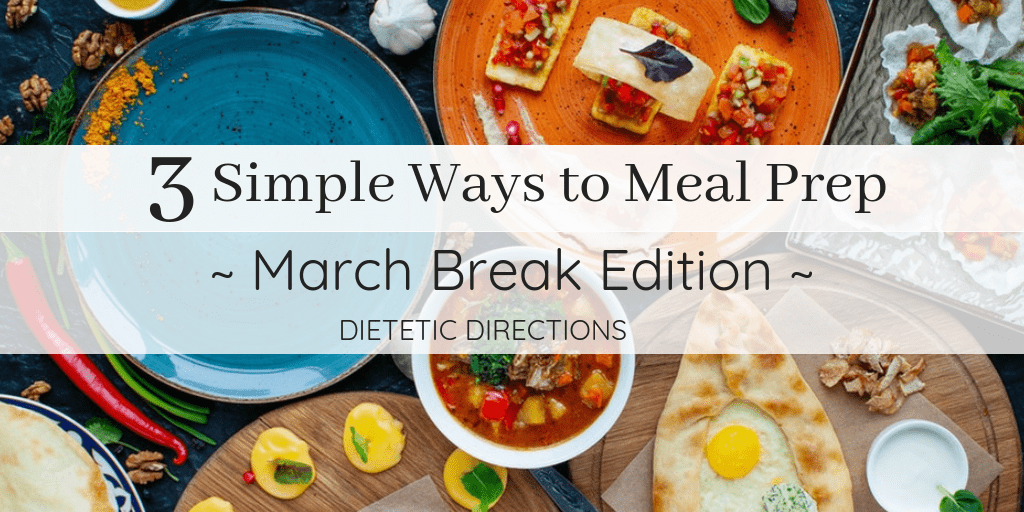
Bottom Line of Best Pre Workout Foods:
Utilizing macronutrients can help you plan the best pre workout food to enhance workouts and physical activity. This supports mental and physical health. What to eat before workouts will depend on how much time you have to digest your food. Carbohydrates are vital before physical activity as the body’s preferred energy source. In addition, protein is slow to break down, but it supports muscle repair. Finally, keeping your body well hydrated enhances performance and improves recovery. Importantly, if you need more support, you can always work with a dietitian.
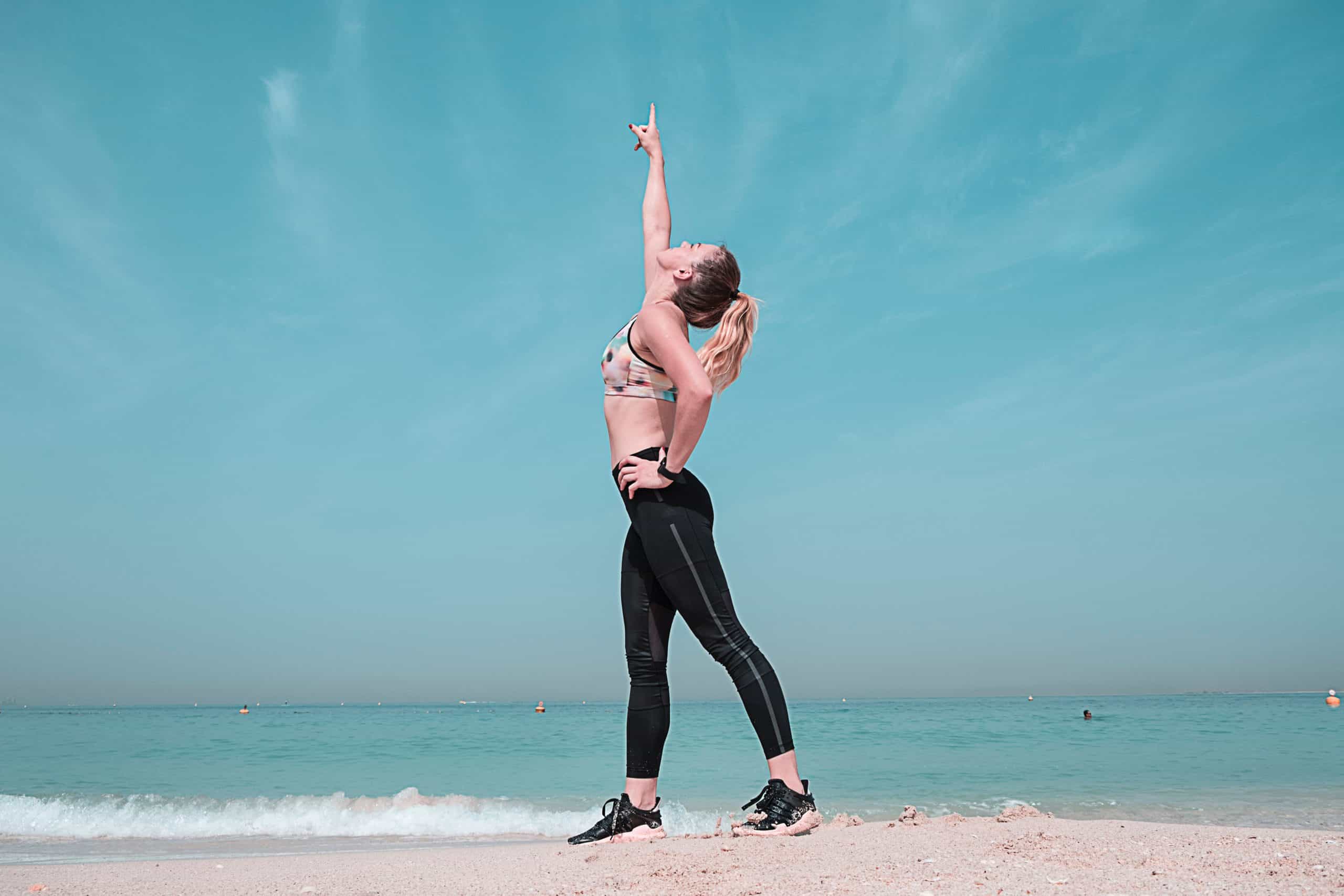
Now it’s your turn! What do you think is the best pre-workout food?


